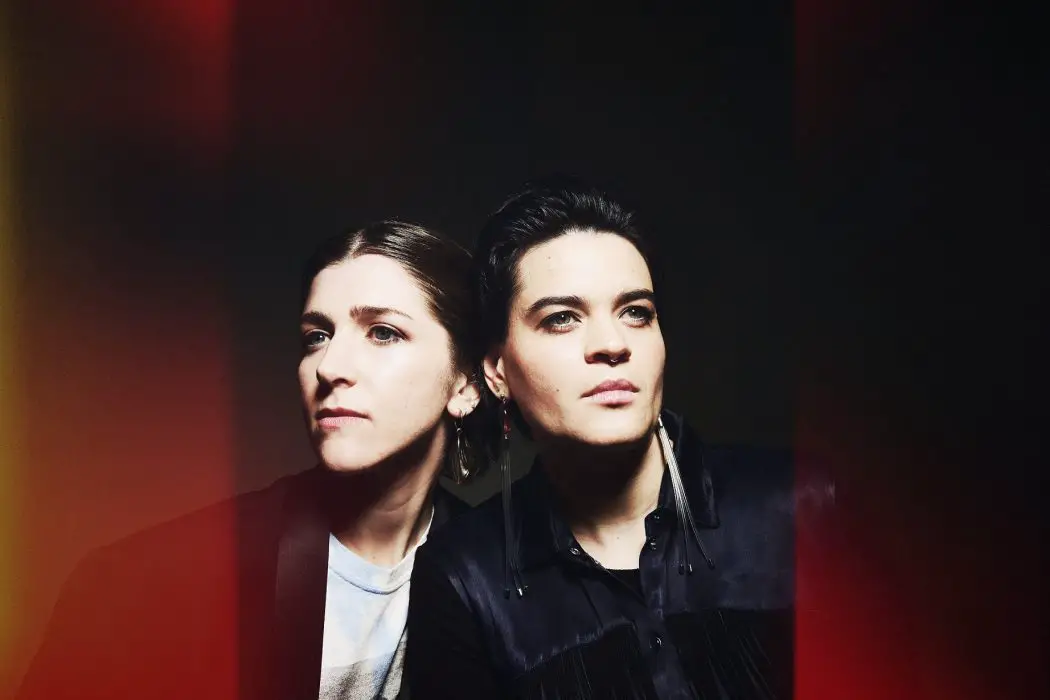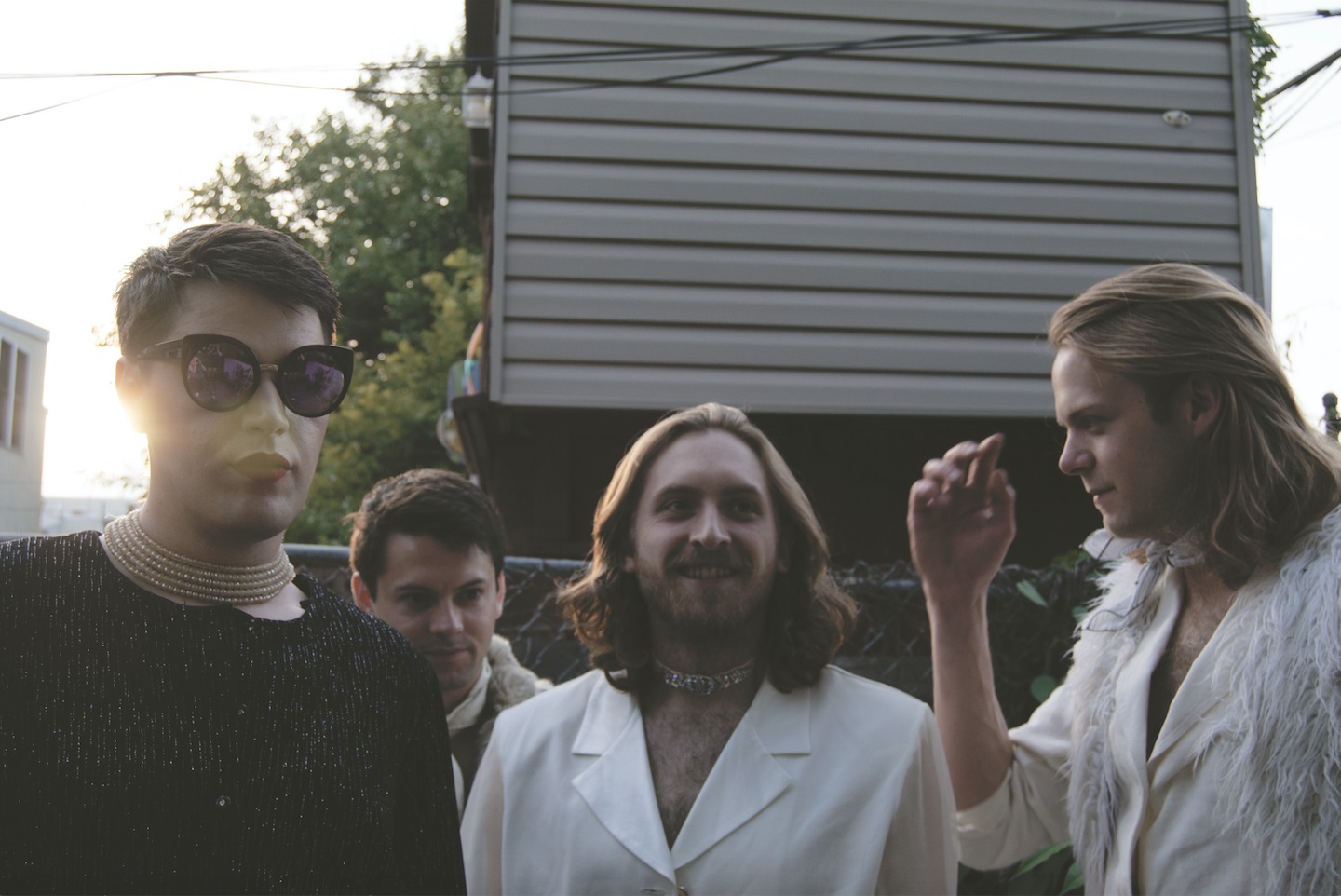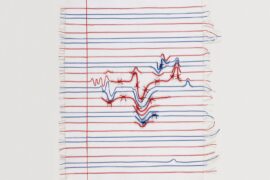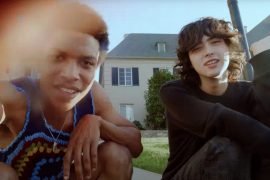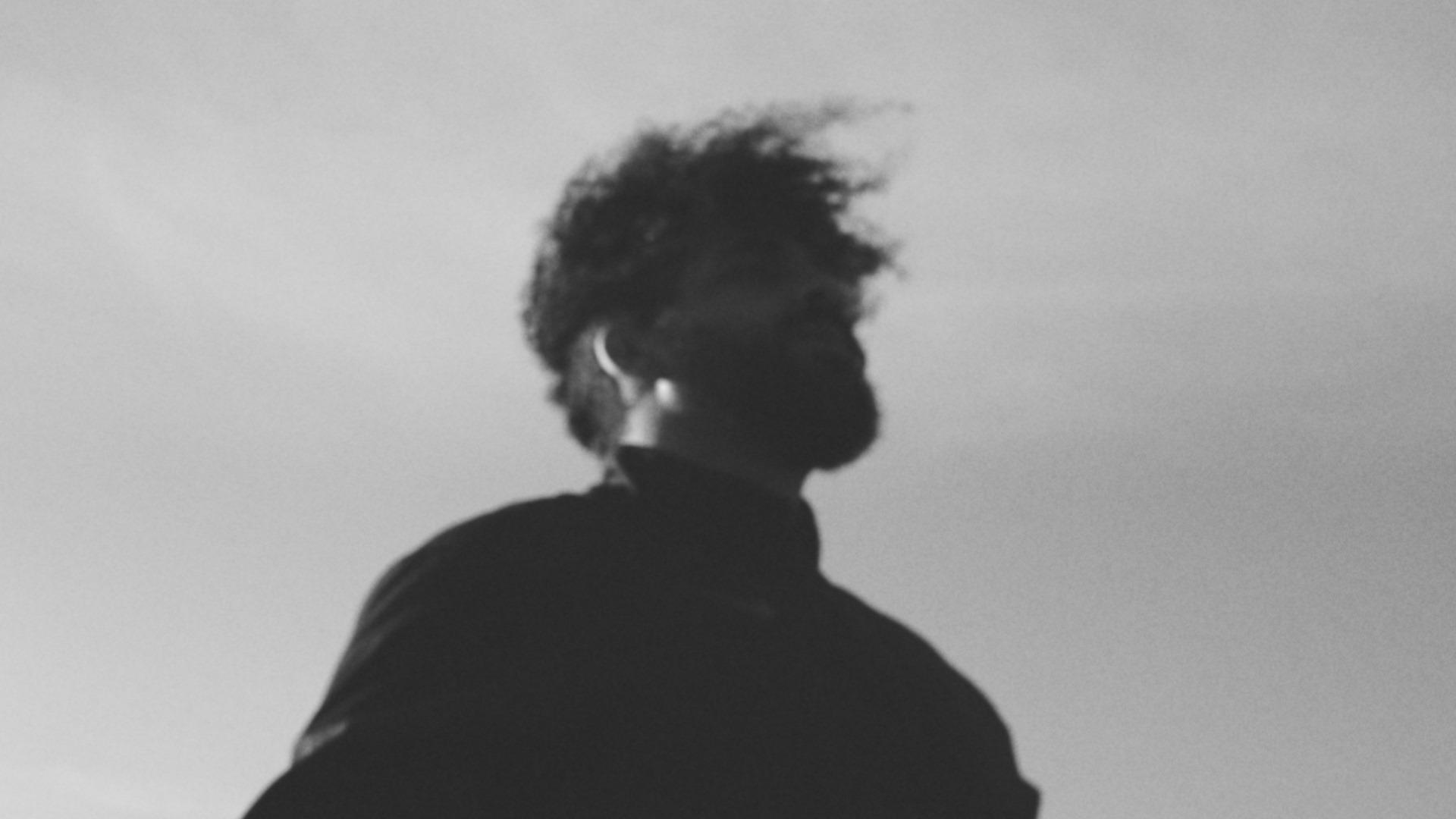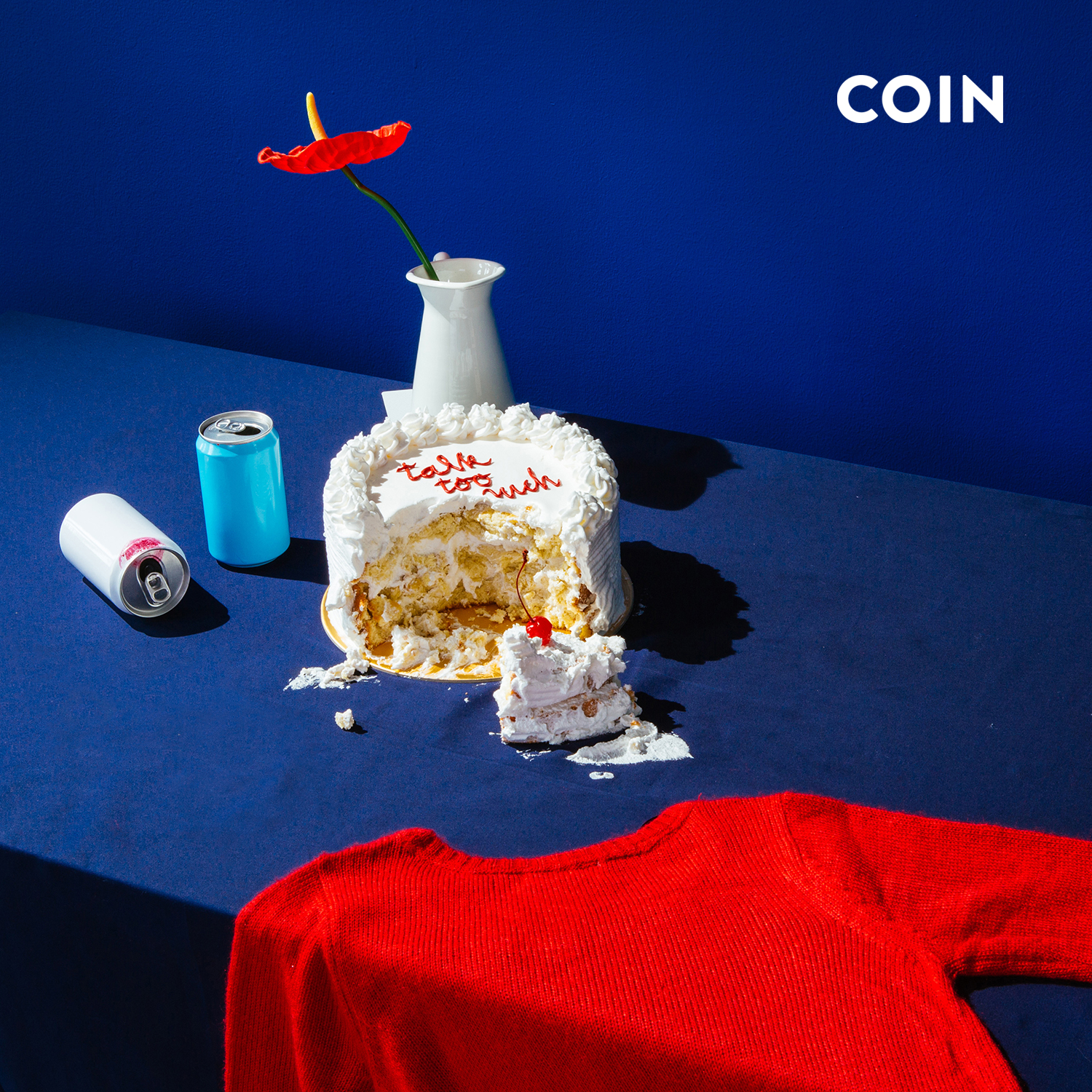Brooklyn duo Overcoats talk to Atwood Magazine about the band’s evolution, their hopeful, unapologetic and empowering new album, and how they’re keeping ‘The Fight’ alive during the COVID-19 pandemic.
Stream: ‘The Fight‘ – Overcoats
We wrote a lot of the songs with the idea in mind that we wanted people to feel hopeful.
JJ Mitchell and Hana Elion are fighters; they have been ever since I first met them over five years ago now. Two twenty-something best friends living in Brooklyn, the pair formed their musical duo Overcoats originally as an indie folk-adjacent project, writing and singing acoustic songs that showcased their beautiful, breathtaking vocal harmonies and genuine, honest music. Today, they’re using their voices to fight for what they believe in – only now, with a more rock n’ roll edge.

“Something that’s very special about our band and our bond is that we write these songs together, and it’s a way of connecting and not feeling so alone and having each other,” Elion reflects. “A lot of our original writing was about isolation and connection within a twosome; of feeling like it was very hard to reveal certain thoughts, or being vulnerable even with someone writing a song, and finding ways to just be able to have trust and empathy within our friendship and as a band.”
I can see it in your eyes
You’re losing your light
Wondering is this just life
I’ve been through it all before
And I don’t know
if there’s something more
But there’s so much worth fighting for
If you break down and cry
I will stay through the night
Don’t you know that we’ll both be alright
I will be there; I will be there
– “I’ll Be There,” Overcoats
With themes of isolation and connection making up their foundation, Overcoats set a high bar for themselves with 2017’s haunting debut album YOUNG – an intimate, electronic and at times ethereal set of songs which they toured with and promoted for almost two full years. For their follow-up, the duo found themselves strongly responding to their more immediate surroundings: A post-#MeToo world where activism and fighting for what you believe in were expressed loudly and out in the open, rather than hidden behind closed doors or on private text chains.
“The fact that we sing everything in harmony is still at the core of what we’re doing,” JJ Mitchell explains. “We were very conscious of that in making The Fight, that we wanted it to sound like a new chapter for Overcoats. Our first record was much more electronic, a little bit more sparse. This new album has the makings of rock and roll. And so there’s definitely some different instrumentation, a different kind of sonic bed.”

“What we wanted to talk about on this record was a lot more angry and a lot more political than our last record,” adds Elion. “And so the music and the aggressiveness, and the grittiness of the music needed to reflect that.”
Released March 5, 2020 via Loma Vista Recordings, Overcoats’ aptly-titled sophomore album The Fight is a self-described “ten-song battle cry,” a mature and striking follow-up marrying the band’s irresistibly catchy songwriting with the intensity of living in a broken, fractured world. A concept album, The Fight‘s songs all revolve around different forms of fighting: Fighting for things that you want to see in the world, fighting against loneliness, depression, anxiety, and your inner demons, fighting against the current political climate, fighting sexism, fighting for climate justice, and so on. From the urgent and irresistible “Fire & Fury” to the electrifying, raw lead single “The Fool,” and the restless anthem “Leave If You Wanna,” The Fight‘s songs are all unapologetic and empowering.
It’s an exciting evolution for Overcoats, and one that still holds true to their core principle of connection.
Had The Fight released during any normal period of time, it would serve as an inspiration. As it happens, the album arrived just as COVID-19 was starting to hit the United States; soon after this music was out in the world, the coronavirus epidemic was elevated to global pandemic status, and dozens of governors were declaring states of emergency in their respective states.
“It’s been very interesting to be promoting this album and talking about the songs, because a lot of them have really taken on new meaning for us,” Mitchell shares. “Despite being about some of the issues I mentioned before, they also really map on more broadly to the idea of perseverance and the fight for survival generally… It’s been really interesting to be listening to these songs and talking about these songs while so many people are feeling isolated, and like they need to fight for something. So it’s been very intense, but also a really beautiful thing to connect with people who are finding solace in the album, especially with the current events right now.”
Don’t turn away now
You can rely on me
I’ll pick up the pieces when they fall
Just remember that you are not alone
We’re all just trying to stay afloat
I could say it all tonight, but I won’t
– “The Fight,” Overcoats
As a soundtrack to living through this time of global pandemic, The Fight is a wellspring of energy offering solace and empathy, inspiration and love, excitement and passion.
Its themes relate to us differently than they perhaps would have in another time, but they are more relevant, relatable and important now than ever, with communities around the world forced to transition into (and indeed, reckon with) a new way of life involving illness, death, separation, social distancing, and self-quarantining. Speaking to Atwood Magazine in late March, Overcoats found themselves challenged with Hana Elion cooped up in her New York City apartment, and JJ Mitchell at home with her parents in the DC area.
Overcoats nevertheless remain a bright and positive force on the indie music scene as a band whose music helps us feel a little less lonely and a little more connected.
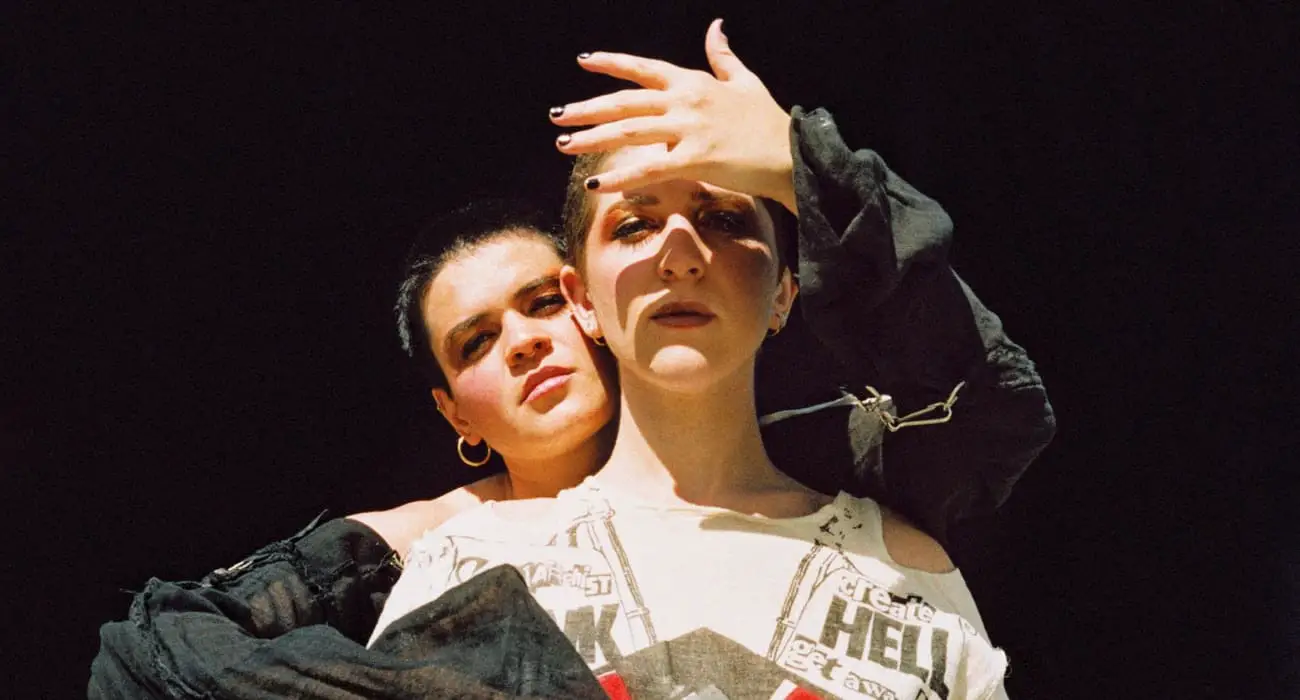
Atwood Magazine spoke with Elion and Mitchell about their band’s evolution, the inspiration behind their new album, and how they’re keeping The Fight alive during pandemic. Yes, it’s difficult to rationalize talking about music during such a dark and difficult time, but for many, myself and Overcoats included, music is medicine – a powerful magnet that is going to help see us through to better days and greener pastures.
Music is a way of connecting with people and of creating common ground and not feeling so alone. That’s always been the reason we’ve come to each other to make music, and we want to provide that space for other people.
Stream: ‘The Fight‘ – Overcoats
CATCHING UP WITH OVERCOATS
Atwood Magazine: Thank you so much for your time. This is so exciting. I feel like I've you know known Overcoats for over a half-decade now, which is a very long time these days!
JJ Mitchell: That’s terrifying.
You've been a band for a while.
Mitchell: Yeah, well you’ve pretty much known us since the moment we started. And it usually takes like a year or two to actually become a real band, and you’ve known us since basically before we were a real band.
And I still love the music.
Mitchell: It’s probably the longest of anybody –
Hana: Mitch, you’re our oldest friend.
Okay there, haha! But, you know, it really is special listening to every successive new release and hearing how your music has changed so much in five years’ time, and I kind of wanted to start by asking the two of you: Do you ever think about that? In terms of you know your change and development over time. When you look back, just four years ago, to who you are today, what comes to mind?
Mitchell: I definitely am glad to hear that there’s been some evolving and changing. I’d be worried if you started the interview saying, “So, not much has changed!” I think that it’s always a challenge for bands to follow-up their debut album with something that’s exciting and new, but also not a complete departure. And so we were very conscious of that in making The Fight, that we wanted it to sound like a new chapter for Overcoats. Our first record was much more electronic, a little bit more sparse. This new album has the makings of rock and roll. And so there’s definitely some different instrumentation, a different kind of sonic bed.
That being said, we definitely still completely orient ourselves around the combination of our two singing voices, and the fact that we sing everything in harmony is still at the core of what we’re doing. And so, I think, walking that fine line between evolving your sound but also maintaining what makes you who you are, is what we were attempting to achieve with this record.
Elion: I think as well, since we started writing music together, the world has really changed a lot. And I think that our songwriting and what we’re writing about has consequently, changed as well. As JJ said, we’ve always been about kind of honoring what it sounds like when the two of us sing together, and I think the musical changes that have happened have been parallel with the kind of world changes, and the subject changes within our music. We’ve just been kind of trying to let the sonics follow what we want to talk about, and what we wanted to talk about on this record was a lot more angry and a lot more political than our last record. And so the music and the aggressiveness, and the grittiness of the music needed to reflect that.

When I think about it, YOUNG was the culmination of songs you had been writing for the past three years, right? It was the entirety of who you were as a band up to that point in time. Once you were able to get past that debut, you were responding directly to the world around you, whereas initially you were just responding to your own impulses.
Mitchell: Yeah, I think that’s really, that’s really accurate. I think that also one thing that might happen in a sophomore album is that, once you have people who you trust as listeners, and after people have sort of accepted that you’re a storyteller and that they feel like it’s okay for you to share your mind, then you kind of feel like you can expand the breadth of what you’re writing about – and I think that definitely happened for us. As you said, our first record was very internal, and talks about kind of a very personal coming of age story for us and how we relate to our parents and our mothers and our fathers, and who we want to be as women in the world. And then for this second record, we felt like we had a little bit more both responsibility, but also trust from our listeners, to be able to talk about things that were maybe outside of our own very, very personal experiences. And so I think that that made its way onto the album in a couple of songs, where we wanted to comment more broadly on things that were happening politically, and even just more broadly in terms of the music industry as a whole.
And so, for songs like ‘You Just Stay the Same” (“YJSTS”), we wanted to explore the sexist micro-aggressions that we experience on a daily basis in the recording studio, in the industry more broadly, and kind of make a statement that other people could relate to. That was the case also with “Fire & Fury,” that we were kind of expanding some of our definitions and some of our analysis to things that we felt were more of a societal problem and affecting people, beyond just the two of us.
The Fight has been out for two weeks now, what is it been like having this album out in the world.
Elion: It’s been really interesting, because obviously it’s been a long time that we’ve been working on this, so we were really thrilled to have it in the world. And all of the topics that we were writing about to this album – fighting depression and anxiety, fighting against the current political climate, fighting sexism, fighting for climate justice – all of these things that we were writing about, they’re still very poignant to the lyrics, but certainly with the album coming out in the midst of when coronavirus was starting to really hit the US very badly…
It’s been very interesting to be promoting this album and talking about the songs, because a lot of them have really taken on new meaning for us. Despite being about some of the issues like I mentioned before, they also really map on more broadly to the idea of perseverance and the fight for survival generally, so it’s been really interesting to be listening to these songs and talking about these songs while so many people are feeling isolated, and like they need to fight for something. So it’s been very intense, but also a really beautiful thing to connect with people who are finding solace in the album, especially with the current events right now.

What have fan reactions has been like? Do you have any insight into how people are experiencing the record?
Mitchell: We had to postpone our tour and we haven’t really gotten to play the song live to our communities or listeners, but from what I can understand just from social media, the online response has been similar to what Hanna was just describing. Certain songs on the record are just like ridiculously salient in a way that we couldn’t have ever predicted. “Fire & Fury,” “I’ll be There,” the title song “The Fight” are just lyrically very, very relevant. And so, a lot of people have been on posting that “Fire & Fury” is the only thing they want to listen to during the apocalypse, which is very sweet, because I actually feel the same way. I think hopefully, people can take whatever they need from the music at this time.
We wrote a lot of the songs with the idea in mind that we wanted people to feel hopeful, and we wanted the songs to straddle reality, and take on these issues head-on, but also provide hope, and provide a silver lining in anthemic choruses. We felt that it was our responsibility to provide that in our music, so we’re thanking ourselves for doing that – because of how bleak everybody’s situation is right now. Hopefully the songs are resonating with people; I think we won’t really get to experience living with them and playing them for people until the fall, but for now it’s been really nice to hear people’s reactions through the internet.
We wrote a lot of the songs with the idea in mind that we wanted people to feel hopeful.
I want to talk about isolation and connection, two motifs that are present in a lot of your music, and as we've already said, they're all the more relevant now. What is it about these two concepts that have made them such important subjects for you?
Elion: I think just in like philosophy of being a duo, those concepts are really important. I think, for everyone in the world, obviously feelings of loneliness and of isolation and shame or sadness, all of these are common feelings. Something that’s very special about our band and our bond is that we write these songs together, and it’s a way of connecting and not feeling so alone and having each other. A lot of our original writing was about isolation and connection within a twosome, you know; of feeling like it was very hard to reveal certain thoughts, or being vulnerable even with someone writing a song, and finding ways to just be able to have trust and empathy within our friendship and as a band. I think for this album, we wanted to widen the scope, and I think that it’s always going to be an important piece of what we do, because it’s a huge part of what music does for us. Music is a way of connecting with people and of creating common ground and not feeling so alone. That’s always been the reason we’ve come to each other to make music, and we want to provide that space for other people.
That's lovely. Do you feel like you've been finding new ways of connecting over the past couple of weeks, especially in this new world we live in?
Mitchell: Zoom is an amazing tool. We’ve been “zooming” a lot, we’ve been FaceTiming, we’ve been communicating to each other through our Instagram story, which has been comical… sending voice memos of new songs back and forth, which is something we usually do. That’s not new. I think that we’ve definitely had to get creative, and we’re working now on this series called “Friday Night Fights” that’s just Hana and I meeting on Instagram Live from our separate locations, and we do a game show section and then at the end, we’re going to be doing a performance of one of the songs from the album. This past Friday we did “Fire & Fury,” and we played newlyweds, which was kind of a semi-disaster because we’re both kind of, sort of terrible at technology –but we got there in the end! This week, I think we’re going to do “hot seat” or “truth or dare” – something like that. We’re trying to take The Fight digital and still be able to connect with our fans, even though we don’t get to be playing in their cities every night. I just keep thinking like, Thank God we have FaceTime and Instagram, and all these ways of connecting! I can’t even imagine what it was like having Spanish Flu, and nobody even had a telephone.
We’re so globally connected, that I feel like it’s not even that difficult; it’s just about what makes the most sense and what our listeners want to hear from us, and how we can be helping them to feel less isolated at a time like this, but I feel like we have many tools at our disposal, which is very nice.
It’s just about what makes the most sense and what our listeners want to hear from us, and how we can be helping them to feel less isolated at a time like this.
I completely agree; it really makes you appreciative for what we do have. Continuing on, I do want to talk about a couple of the songs. Why do you open The Fight with the song, “I'll Be There”? What's special about this track that made it the album's introduction?
Elion: I think as I was saying, for about how the thing that we always begin from is our friendship and the combination of our two voices, it felt important to start the album off with a song that was reflecting that. “I’ll Be There” is really an ode to friendship and an ode to connection. There’s obviously angrier songs that are more about disconnection, but “I’ll Be There” is one that’s really about us. There’s not much more accompanying it; it’s all our voices, and it’s a message about being there, no matter what. It felt like an important way to reintroduce ourselves to people in this second record.
You recently mentioned that “Drift” was the first song you wrote for this record; at what point did you know that this marked the beginning of something new for you?
Mitchell: We’re always writing, so that just was the first song that we wrote after touring for almost two years for our first record, and we weren’t necessarily sure at the time that that would be part of our second album, but it did kind of open up our process of songwriting for this most recent album. It reinvigorated our desire to sing about things that are very vulnerable and things that are scary. I think that it ended up being on the record only after we decided that the concept of the album was these different forms of fighting: Fighting for things that you want to see in the world, fighting against loneliness and anxiety, and like your inner demons… And so that song kind of made its way back to us and was like, “Yeah, I fit on this album,” and we were like, “Yeah, you do.” And so, I think it was an important step, but it wasn’t necessarily clear at the beginning of writing that song, that it was going to make the album. It sort of circled back once he had written the title track “The Fight,” we went back and looked at all the things that we’d been working on… And I think “Drift” was very special to us because it was about being touring musicians. It’s about being lonely and on the road, alone, and feeling isolated and distant, and it’s part of the puzzle of fighting. It’s what happens when you follow your dreams; when you choose to follow your dreams, you’re going to be met with some hard moments of feeling alone.
I love “Drift.” It had many names – it had a different name before it became “Drift,” but we realized all of our songs had the word “leave” in them. It was called “If You Leave,” and then we were like, hang on, we have “Leave the Light On,” and now we have “Leave If You Wanna”… And so that one had to have a name change. But it’s otherwise the same as when we first wrote it.
When you choose to follow your dreams, you’re going to be met with some hard moments of feeling alone.
I’m glad it ended up on the record, for what it’s worth!
Overcoats: Yeah, we are too!
Once this passes and people recover, I hope we are able to learn from this experience that there are good ways that we can use the internet, and that there are great ways of connecting that have already been at our disposal for such a long time, that we perhaps haven't been making as much of a use of.
Elion: Yeah, definitely – I oscillate. Some days I’m like, “We need to get out on Instagram live and we need to talk to our fans and we need to make hope and do all this stuff,” and then other days I’m like, How can someone be on Instagram right now when people are dying?! Like, this is crazy that we’re all just trying to be on social media right now; it feels kind of fake and a distraction. I oscillate between those two things probably multiple times a day, because it’s hard – you know, in some ways, social media is a great way to connect with people, and in other ways it all feels really futile and shallow. We’ve thought a lot about social media – “Fire & Fury” actually originally started kind of as a commentary a bit on social media and sanity and stuff, and so we’re trying find a mix between the two: Being available and creating hope and creating content, and also realizing that that’s not what’s most important right now, and trying to use your energy on other things too, so it’s tough. It’s hard to know what the best way to do this all is; I don’t think anybody has the answer.
We’re trying find a mix between the two: Being available and creating hope and creating content, and also realizing that that’s not what’s most important right now…
I couldn't agree more. So in our last chat, you mentioned two of your favorite songs off The Fight are “Apathetic Boys” and “New Shoes,” and I was hoping you could share what it is about them you like so much. We can start with “Apathetic Boys”: Why is that song special?
Mitchell: That song was such a cathartic release for us. It’s definitely the most unapologetic song on the record, and it pokes fun at the male-dominated rock scene, it teases Radiohead fans; it was just really fun to make, and it’s really fun to sing live. And I think that it’s a different way for us to say our piece. I think that that was very refreshing, because in the past it feels like we haven’t always been able to include humor in the way that we’re kind of pointing out either sexist things, or just things that we want to change in the world; and so, this song was like an experiment, and I think it was very freeing for us both sonically and lyrically to be able to just say what we wanted to say, but say it in the language of the people that we’re trying to talk to, if that makes sense.
And I think that, often as women in music and as women generally, we always find ourselves having to carry so much of the emotional weight of situations. And, you know, not always, but this is kind of a generalization of what we’ve experienced. To kind of shake off that burden by singing the way that we do in “Apathetic Boys” was very freeing, and I really hope that we make more songs like it. The issues in the song are quite serious, but the song itself is not – and I like that about it.
The issues in the song are quite serious, but the song itself is not – and I like that about it.
I think it's pretty cool to strike that balance. So, let me also ask about “New Shoes,” which you end the album with. Why did you choose to have it be the last song on The Fight?
Elion: I think similarly to the reason we started the album with “I’ll Be There,” we’re a big fan of bookends – we did that on our first album as well with “Father” and “Mother” as the first and last songs. So “New Shoes” kind of acts as the bookend with “I’ll Be There” – both songs being primarily just our voices. We also wanted “New Shoes” to be the last song to kind of act as a question mark. In a lot of ways, we wanted to make an album that really resolved in a very empowering way with The Fight, and we still wanted to have a moment of uncertainty, or maybe a moment of complexity, having to do with the subject of fighting, for the last song of the record. “New Shoes,” as well, goes kind of back to that more intimate fight – the fight for yourself and how you want to be treated. It felt like an important thing to come back to at the end of talking about, like world domination and survival.
It’s us, it's everybody else, and it's us again. I like how you end up telling your story that way: It’s a concept album that allows the theme of fighting to really take shape a little more viscerally.
Mitchell: I think most of the songs have the word “fight” in them, they’re all kind of about different forms of fighting… I think even if it’s not The Who’s Tommy, I think there’s definitely a concept that’s bringing all these songs together.
Thank you both so much for your time. I empathize and understand how tough it is to spend all this time on your music, and then to have it sort of sidelined by a pandemic, but I do think there’s a lot of life in The Fight, and it’s music worth listening to right now. Thank you for hopping on the call today and talking to me about it.
Mitchell: Yeah, thank you so much. It’s nice to feel like we’re pushing on and spreading the word about the record, so thank you for those great questions!
Of course. Stay safe both of you. My best wishes and health to you and your families and your friends, and we'll talk again soon.
Overcoats: Likewise, thank you.
— —
:: stream/purchase The Fight here ::
— — — —

Connect to Overcoats on
Facebook, Twitter, Instagram
Discover new music on Atwood Magazine
? © Shervin Lainez
:: Stream Overcoats ::

